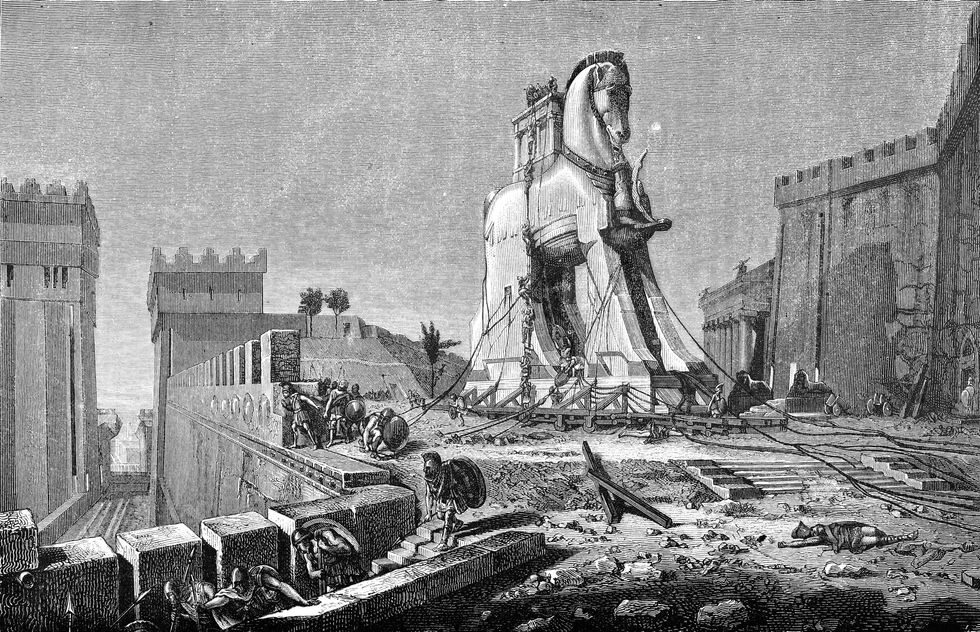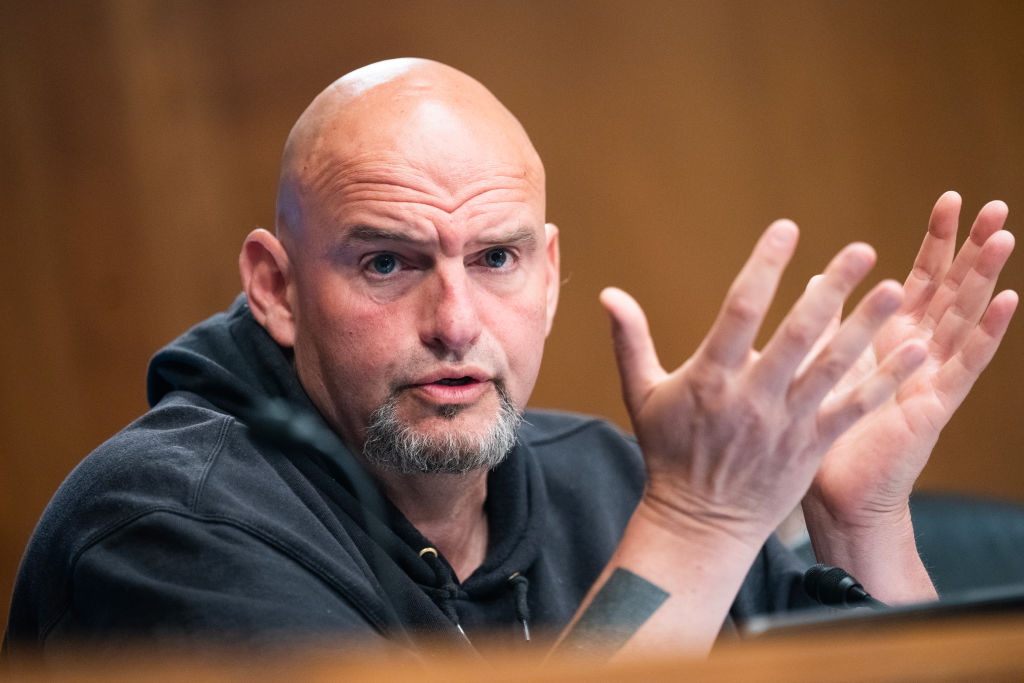Why universal basic income is a Trojan horse for globalist control over free citizens
To most people following the story, UBI means universal basic income. The proposal, which has floated around under different names since antiquity, took shape in its modern incarnation as a project mainly pushed by British intellectuals favoring (at a minimum) some kind of collectivist floor to capitalist society. Today, this sort of welfare arrangement is more closely associated with tech and tech-adjacent people who see progress in automation as inevitable and/or highly desirable. However, it is also costly because it adversely impacts the relevance or use of most human beings. A lot of people laugh at satanism and even the idea of Satan, but there’s a reason the devil has stuck around in our consciousness to this very day. It is no surprise that the arc of utopian Anglo thinking would end up here. Communism, as formulated by the functionally Anglo Marx and Engels, looked forward to a time when all people became industrially free to toggle among whatever pursuits they preferred whenever they cared to do so. It is but a small leap to posit that the only real path to realizing this utopian collective is for a special class of super-capitalists to build the only kind of industry that could theoretically liberate everyone from the need for work or, indeed, any economic valuation. That agenda (and the worldview behind it) seems very difficult to reconcile or harmonize with Christianity — for many reasons, but perhaps above all because it dramatically encourages looking to the machinery of utopian collectivism (and the people behind it) as the source of all goodness, salvation, and creative power rather than to the Lord of all creation, the triune God. All too predictably, it’s now increasingly fashionable and high-status for AI researchers and technicians to baldly proclaim that they’re building a god to be worshiped as the one true transformer of all people out of their given human form. This is a god that destroys the Christian God by destroying the crown jewel of His creation, the human being. Of course, we’re told, this is a good thing, actually, because what comes next for us is beyond our wildest dreams — in other words, we’re about to become gods, too, and it will be like nothing anyone has imagined. This promise will carry the sting of especially diabolical heresy to those familiar with the millennia-old sacred Christian tradition of theosis, the concept and (highly laborious) practice of working to achieve union with God eventually. That tradition, taught carefully by the Church, has emphasized that the greatest of spiritual risks and harms come from trying to shortcut or speed-run theosis, properly understood as the reunion desired for us all by the immeasurably loving God who created us. The path toward theosis is marked and defined by the utmost patience, humility, discipline, and self-denial — not by (for example) maximizing “mind-blowing” inventions that make it ever easier for people to experience ecstasies and produce fantasies. In sum, the best and oldest Christian teachings have warned the most against what is being pitched to us most aggressively as humanity's ultimate universal achievement. Notably, this warning has great power because it doesn’t order us to stop making advanced tools or using them simply. Its counsel is more difficult and more spiritually purifying. It’s to recognize that the temptation to usurp and replace God is so difficult to resist that our best efforts are doomed to failure without an utterly humble and absolute reliance on God and trust in Him — a round-the-clock watchfulness wherein we focus on stopping temptations at the spiritual door to our hearts before they can get in, take hold, and grow. All this deep and needful wisdom seems to be entirely lost on the loudest and most prominent advocates of universal basic income today, who are really advocating it because it helps accelerate us toward universal bot idolatry.Beneath the hype, advocates struggle to ignore the fact that even the most extraordinary machines are only means to ends outside and beyond them. All machines, all tools, are for something, and the existence and development of these useful devices always ultimately depend on a creator exercising some kind of discernment, judgment, and, it must be concluded, worship. As bleeding-edge technologists increasingly recognize that theology and worship are inescapable no matter how radically machine-making evolves, they must inevitably come to realize that one’s own tool — one’s own creation — can never be one’s god. If you think you’re worshiping tech for tech’s sake, you are deluded; you’re actually serving some other idol, some other facet of God broken off and falsely elevated to spiritually sovereign status. A lot of people laugh at satanism and even the idea of Satan, but there’s a reason the devil has stuck around in our consciousness to this very day. And a lot of people are about to relearn why.


To most people following the story, UBI means universal basic income. The proposal, which has floated around under different names since antiquity, took shape in its modern incarnation as a project mainly pushed by British intellectuals favoring (at a minimum) some kind of collectivist floor to capitalist society.
Today, this sort of welfare arrangement is more closely associated with tech and tech-adjacent people who see progress in automation as inevitable and/or highly desirable. However, it is also costly because it adversely impacts the relevance or use of most human beings.
A lot of people laugh at satanism and even the idea of Satan, but there’s a reason the devil has stuck around in our consciousness to this very day.
It is no surprise that the arc of utopian Anglo thinking would end up here. Communism, as formulated by the functionally Anglo Marx and Engels, looked forward to a time when all people became industrially free to toggle among whatever pursuits they preferred whenever they cared to do so.
It is but a small leap to posit that the only real path to realizing this utopian collective is for a special class of super-capitalists to build the only kind of industry that could theoretically liberate everyone from the need for work or, indeed, any economic valuation.
That agenda (and the worldview behind it) seems very difficult to reconcile or harmonize with Christianity — for many reasons, but perhaps above all because it dramatically encourages looking to the machinery of utopian collectivism (and the people behind it) as the source of all goodness, salvation, and creative power rather than to the Lord of all creation, the triune God.
All too predictably, it’s now increasingly fashionable and high-status for AI researchers and technicians to baldly proclaim that they’re building a god to be worshiped as the one true transformer of all people out of their given human form. This is a god that destroys the Christian God by destroying the crown jewel of His creation, the human being.
Of course, we’re told, this is a good thing, actually, because what comes next for us is beyond our wildest dreams — in other words, we’re about to become gods, too, and it will be like nothing anyone has imagined.
This promise will carry the sting of especially diabolical heresy to those familiar with the millennia-old sacred Christian tradition of theosis, the concept and (highly laborious) practice of working to achieve union with God eventually. That tradition, taught carefully by the Church, has emphasized that the greatest of spiritual risks and harms come from trying to shortcut or speed-run theosis, properly understood as the reunion desired for us all by the immeasurably loving God who created us. The path toward theosis is marked and defined by the utmost patience, humility, discipline, and self-denial — not by (for example) maximizing “mind-blowing” inventions that make it ever easier for people to experience ecstasies and produce fantasies.
In sum, the best and oldest Christian teachings have warned the most against what is being pitched to us most aggressively as humanity's ultimate universal achievement.
Notably, this warning has great power because it doesn’t order us to stop making advanced tools or using them simply. Its counsel is more difficult and more spiritually purifying. It’s to recognize that the temptation to usurp and replace God is so difficult to resist that our best efforts are doomed to failure without an utterly humble and absolute reliance on God and trust in Him — a round-the-clock watchfulness wherein we focus on stopping temptations at the spiritual door to our hearts before they can get in, take hold, and grow.
All this deep and needful wisdom seems to be entirely lost on the loudest and most prominent advocates of universal basic income today, who are really advocating it because it helps accelerate us toward universal bot idolatry.
Beneath the hype, advocates struggle to ignore the fact that even the most extraordinary machines are only means to ends outside and beyond them. All machines, all tools, are for something, and the existence and development of these useful devices always ultimately depend on a creator exercising some kind of discernment, judgment, and, it must be concluded, worship.
As bleeding-edge technologists increasingly recognize that theology and worship are inescapable no matter how radically machine-making evolves, they must inevitably come to realize that one’s own tool — one’s own creation — can never be one’s god. If you think you’re worshiping tech for tech’s sake, you are deluded; you’re actually serving some other idol, some other facet of God broken off and falsely elevated to spiritually sovereign status.
A lot of people laugh at satanism and even the idea of Satan, but there’s a reason the devil has stuck around in our consciousness to this very day. And a lot of people are about to relearn why.
Originally Published at Daily Wire, World Net Daily, or The Blaze
What's Your Reaction?
































































































